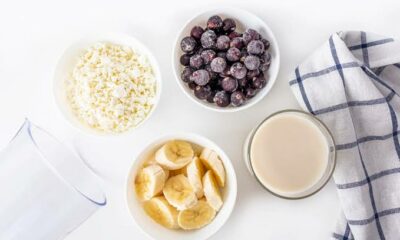Health
5 Ways to Deal with Hormonal Acne
Hormonal acne can be frustrating, especially when it pops up right before an important event or refuses to clear up despite your best efforts.
Most people try to hide it under their glass shield but it doesn’t end well because they still have to show off their face.
If you are amongst those that have been struggling with breakouts that seem to follow a pattern—like appearing before your period or worsening during stressful times—your hormones might be the culprit.
But don’t worry! Managing hormonal acne is possible with the right approach. This is the reason why in this article, I will share with you five effective ways to deal with hormonal acne.
Here are five simple and effective ways to deal with hormonal acne:
1. Balance your diet.

Balance diet
Whatever you consume plays a huge role in your skin’s health. Certain foods can trigger hormonal imbalances that lead to acne.
Try to:
✓ Reduce sugar and processed foods: They can cause insulin spikes and it can lead to increased oil production and clogged pores.
✓ Eat more healthy fats like avocados, nuts, and olive oil: These help regulate hormones.
✓ Incorporate leafy greens and fiber-rich foods: They support gut health, which is closely linked to clear skin.
✓ Drink plenty of water: Hydration helps flush out toxins and keeps your skin glowing.
While diet alone may not cure acne, making healthier choices can reduce inflammation and improve your skin over time.
2. Manage stress levels.

Stress is one of the biggest triggers of hormonal acne. When you’re stressed, your body produces cortisol (the stress hormone), which can increase oil production and lead to breakouts.
To keep stress in check, try these steps:
✓ Practice relaxation techniques like deep breathing, yoga, or meditation.
✓ Get enough sleep: Poor sleep can mess with your hormones and worsen acne.
✓ Take breaks and do activities you enjoy: Whether it’s reading, exercising, or listening to music, find ways to unwind.
✓ Reducing stress doesn’t just help your skin, it also improves your overall well-being.
3. Use the right skincare products.
Sometimes, the reason you’re still facing hormonal acne is because you don’t use the right skincare products.
A good skincare routine can make a big difference in controlling hormonal acne.
If you need the right skincare products, here are a few of them to check out:
✓ Gentle cleansers: Avoid harsh soaps that strip your skin’s natural oils, as this can make acne worse.
✓ Salicylic acid or benzoyl peroxide: These ingredients help clear clogged pores and reduce breakouts.
✓ Retinoids: They promote skin renewal and prevent new pimples from forming.
✓ Oil-free moisturizers: Hydration is key, even if you have acne-prone skin!
Avoid over-washing or using too many harsh products, as this can irritate your skin and cause more breakouts.
4. Consider hormonal treatments.
If your acne is persistent, you might need extra help. Some medical treatments that can balance your hormones include:
✓ Birth control pills: These regulate hormones and can reduce acne in some people.
✓ Spironolactone: A medication that helps control hormone-related oil production.
✓ Prescription creams: Dermatologists can recommend stronger treatments if over-the-counter options aren’t working.
Before starting any medication, consult a doctor to find the best option for your skin type and health needs.
5. Be patient and consistent.
Hormonal acne doesn’t disappear overnight. It can take weeks or even months for treatments to show results.
Stay patient and:
✓ Stick to your routine: Don’t jump from one product to another too quickly.
✓ Avoid picking at pimples: This can cause scarring and make acne worse.
✓ Track your breakouts: Noting when they happen can help you identify triggers and patterns.
As they always say, consistency is the key. Keep up with healthy habits, and you’ll likely see improvements over time.
Conclusion.
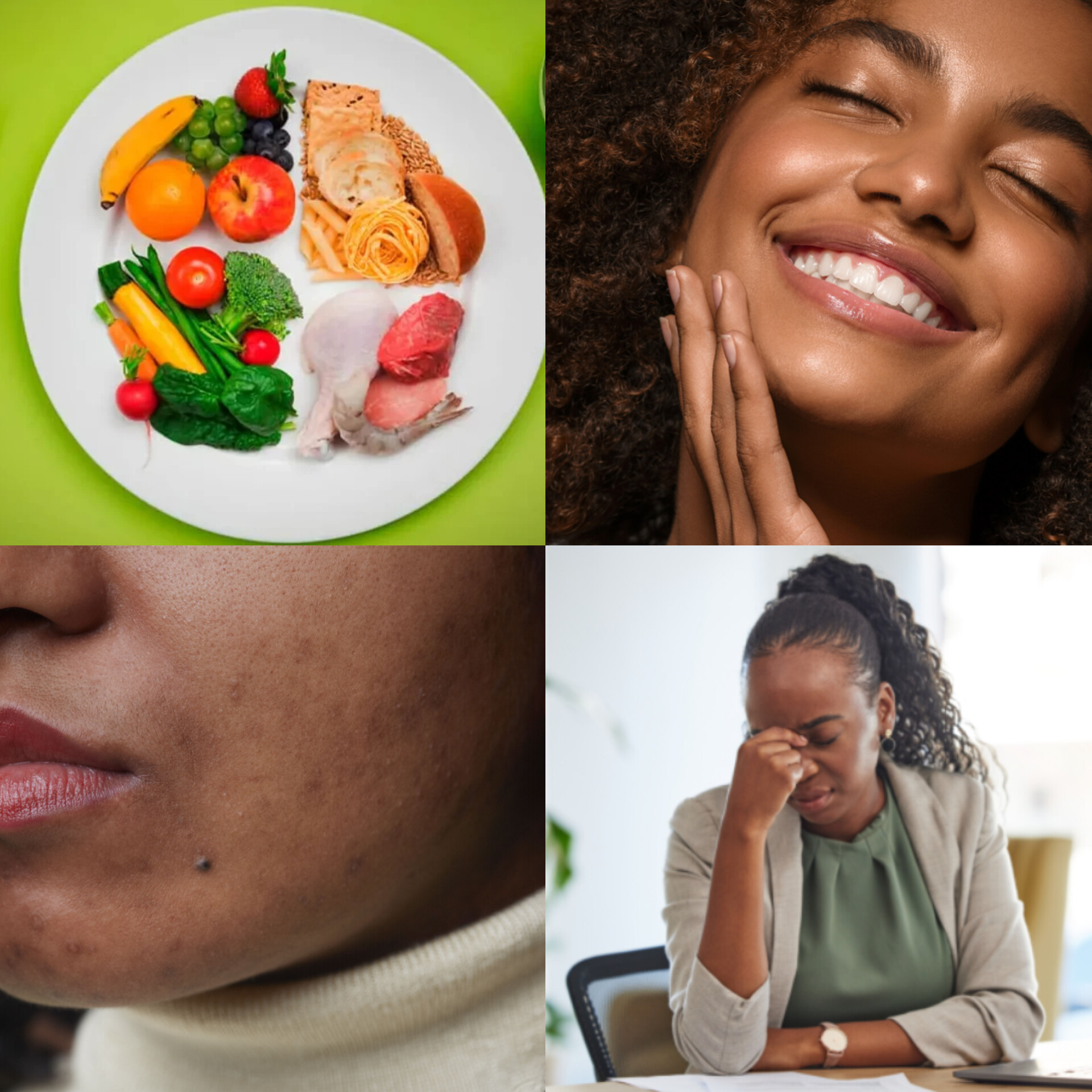
Dealing with hormonal acne can be challenging, but with the right approach, you can keep breakouts under control.
Focus on a balanced diet, stress management, proper skincare, and, if needed, medical treatments.
Most importantly, be kind to yourself—acne is completely normal, and with patience, your skin will improve!
If you found this article helpful, share your thoughts in the comment section.
Read also: Top 5 Nollywood movies on Netflix March 2025
Health
Disordered Eating Vs. Eating Disorder: Experts Explain The Differences And When To Seek Help

Disordered eating and clinical eating disorders are not interchangeable. Disordered eating refers to irregular or emotionally influenced habits around food: chronic dieting, skipping meals, rigid food rules, occasional binge episodes or persistent preoccupation with calories, weight or body shape. These habits may shift, but when repeated over time they often point to growing vulnerability.
Clinical eating disorders, by contrast, are diagnosed mental-health or medical conditions marked by persistent, patterned behaviours that impair physical health, mental wellbeing or daily functioning. Conditions such as anorexia nervosa, bulimia nervosa, binge‑eating disorder and other specified feeding or eating disorders fall into this category.

Image: Google
Evidence from Nigerian research confirms that disordered eating attitudes and risk for eating disorders are present among young adults and adolescents. In a study of more than 1,050 undergraduates from two higher‑education institutions in Lagos, roughly 16 percent scored positive on the EAT‑26 screening tool for disordered eating attitudes.
At a university in Ile‑Ife, a survey of female undergraduates found that 17.1 percent were classified as at high risk for eating disorders, based on the same screening instrument.
A more recent analysis among female undergraduates in Lagos found a lower prevalence of disordered eating (about 5 percent). Still, the study flagged a strong association between body-image dissatisfaction, body‑mass index (BMI) and disordered eating attitudes.
Adolescents are not exempt: a survey of 13 to 19-year-olds in Ibadan used screening tools to assess disordered eating behaviours and feeding/eating disorders. Results showed that 28.2 percent exhibited disordered eating behaviours, and a significant portion also met screening criteria for feeding/eating disorders.

Image credit: Google
Clinical, clearly diagnosed cases have also been documented. There’s a recorded instance of a 20-year-old undergraduate at a Nigerian university diagnosed with anorexia nervosa showing that what may start as dieting or food anxiety can escalate into serious health and psychiatric risk.
Because disordered eating and eating disorders exist within the Nigerian context, distinguishing between them matters. Persistent preoccupation with food, weight or body shape; regular dieting, bingeing or purging; emotional distress tied to eating; and disruption of everyday life are all red flags. When those signs persist, seeking professional support whether nutritional counselling, psychological therapy or medical care becomes essential.
Health
The Exercise That Keeps You Younger

If you’ve ever met someone in their fifties who moves like they’re still in their twenties, it’s likely they’ve discovered the simple habit that keeps the body from giving in to age: regular movement.

While fitness trends keep changing, one form of exercise has stayed constant in its benefits: strength training. It’s not about building bulky muscles or chasing a perfect body. It’s about keeping your bones strong, your joints stable, and your metabolism from slowing down. After the age of 30, the body naturally begins to lose muscle each year. That’s why everyday tasks, like climbing stairs or carrying groceries, start to feel heavier. Strength training helps reverse that.

Research supports this claim. People who lift weights or engage in resistance exercises have lower risks of diabetes, heart disease, and cognitive decline. But beyond the science, it’s about how it makes you feel. Nigerians juggling work, traffic, and family life know how draining each day can be. Even short sessions of body-weight squats, lunges, or push-ups a few times a week can recharge you better than most expensive wellness fads.

It also boosts your mood. Physical activity releases chemicals that help clear mental fog and lift your energy. It’s your body’s way of proving it still has strength to give.
You don’t need a gym to start. A mat, a pair of dumbbells, or even two water bottles will do. The goal is to stay consistent, to keep your body active enough to stay responsive.
Each push, lift, or stretch is a reminder that staying young isn’t about denying age; it’s about moving through it with strength.
Health
Which Fruits Are Highest in Calcium?

When it comes to calcium, most people immediately think of milk, cheese, or yoghurt. But if you don’t consume dairy or just want variety, certain fruits can help fill the gap. While they won’t match dairy in calcium content, these fruits can contribute meaningfully to your daily needs.
Why Calcium Matters
Calcium isn’t just for strong bones and teeth. It also keeps muscles working properly, supports nerve function, and helps maintain a steady heartbeat. A consistent intake is essential at every stage of life, especially for growing children, women over 30, and older adults who face higher risks of bone loss. Here are some fruits that deliver calcium
Oranges

Oranges are widely available in Nigeria and more than just a source of vitamin C. A medium-sized orange contains around 60 mg of calcium, and fresh juice, particularly fortified versions, can provide even more.
Figs (Fresh and Dried)
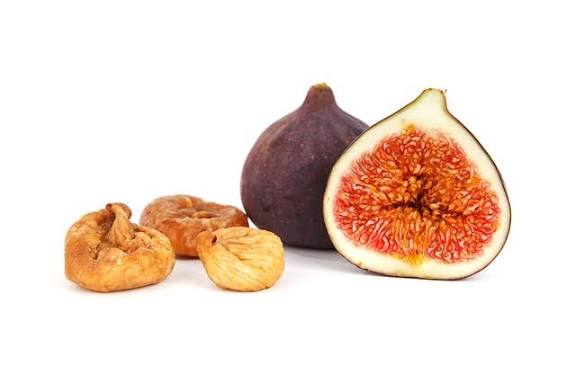
Figs are among the top fruit sources of calcium. Five fresh figs offer roughly 90 mg, while half a cup of dried figs can reach about 120 mg. They also provide fiber and potassium, making them a wholesome addition to snacks or breakfast bowls.
Blackcurrants

Though less common locally, blackcurrants are worth noting. 100 grams supply about 55 mg of calcium and antioxidants that support overall health.
Kiwis
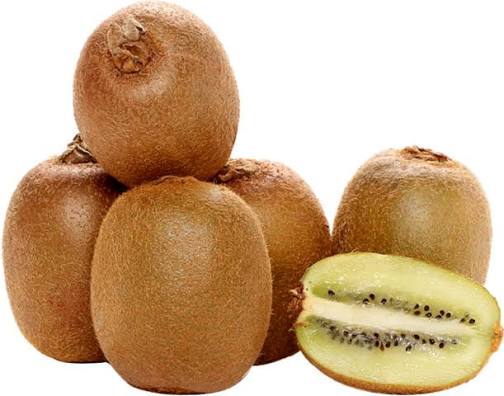
A cup of sliced kiwis contains approximately 35 mg of calcium. They also provide vitamin C, which helps the body absorb calcium from other foods.
Mulberries
Mulberries contain roughly 39 mg of calcium per 100 grams. They are also rich in iron and vitamin K, both of which work alongside calcium to maintain strong bones.
Papaya (Pawpaw)

Papaya is a staple in Nigerian markets and households. 100 grams provides about 30 mg of calcium. It’s refreshing on its own or paired with a splash of lime for breakfast or snacks.
Tangerines

Tangerines contain around 37 mg of calcium each. They are easy to carry, naturally sweet, and a convenient way to get a small calcium boost between meals.
Making Fruits Work for You
Fruits alone won’t meet your daily calcium requirement. However, when combined with vegetables, beans, or fish, they help you get closer without relying solely on dairy. For Nigerians, enjoying seasonal fruits like pawpaw, oranges, or tangerines is a simple and tasty way to support bone health.
-

 Beauty5 months ago
Beauty5 months agoIs There Anything Like Too Many Accessories?
-

 Celebrity News5 months ago
Celebrity News5 months agoToke Makinwa Shares Graceful Pregnancy Reveal
-

 Movies5 months ago
Movies5 months agoTrailer Review: Highest to Lowest
-

 Sex & Relashionships4 months ago
Sex & Relashionships4 months agoSigns You Have Abandonment Issue and How to Heal
-

 Music5 months ago
Music5 months agoKokopee Drops EP ‘All I Need It’s Kokopee
-

 Celebrity News4 months ago
Celebrity News4 months agoAsake Shows off New Hair on Stage
-

 Models5 months ago
Models5 months agoDorothy Anador Celebrates Her Best Self in Birthday Photoshoot
-

 Movies4 months ago
Movies4 months agoMovie Review: Task Official Trailer
-

 Top Xclusiv4 months ago
Top Xclusiv4 months agoItalian Designer Giorgio Armani Dies at 91
-

 Music4 months ago
Music4 months agoAyra Starr – Hot Body Video Review







